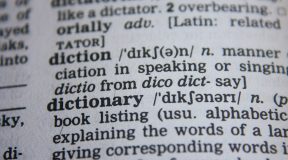In many other posts on our blog, we’ve discussed writing, it’s importance, its use, it’s power, and it’s relevance in the systems that propagate and display it to the readers (search engines for example). But what is the brief life of an article like before it becomes a fixture in the overall content system found on the internet? In this article, we’ll discuss some of the things content goes through before landing on your screen as a researcher or content consumer.
A peek behind the curtain from a writer’s perspective.

Writing is a skill set that many struggle with at first. What looks scary and out of focus, later becomes everything you want to experience. Most people aren’t used to peeking behind the curtain, they’re used to being presented an idea and if it’s useful they use it- if not they don’t.
As you start to research things, it builds an awareness of how information can change everything. How the more you know the more you can share. Not just what you learn, but what you learn mixed with your unique perspective. This is the magic ingredient a good writer will leverage to both learn/grow and to share/earn a living with.
Insight Synergizes with More Insight

An article, post, blurb, Press Release, and the thousands of other types of content start out as a thought provoked by insight; Provided by exposure, reaction, reaction to reactions, experience, and cognitive reasoning. All thoughts are focused in many ways before they become the written text/context. Everyone evolves their skillset differently, but overall writers use a lot of the same systems.
You need a reason to write the article, and often as a freelance writer or blog owner writing on their own blog, this reason is the result of needing something, wanting something, or there is an overall system that this content will help provide movement to. What you need may simply be to write an article on a topic you know little about and you need to get more information, understand it (across several iterations of articles that talk all about it).

As a freelance writer, obviously, you cannot know every topic out there in detail. There are simply too many. This doesn’t work like someone studying for being on Jeopardy where you must know, in advance, the answers to questions ranging from quantum physics to astrophysics and anything between. Nothing that complicated needs to happen now.
Passion Drives Good Writing

A writer is often passionate about their craft. They are unique and capable of powerful reasoning, creativity, and often are excited to stimulate their intellect and to write an article they can post on the fridge every time.
Writers who are new to the craft may not be so symmetrical just yet, but anyone who does this professionally with a serious goal to grow while they earn their daily bread will eventually acclimate to a set of common denominators that make the whole process exciting and rewarding.
The passion they have to learn, to share, to grow is often obvious in the resulting content detail and conciseness.
Things like:
- Sentence structures are to the point and potent
- The quantity/quality of NEW information laced throughout is balanced
- A personality is expressed and unique, but obvious
- Formatting is clean and easy navigation through the article’s points is there
Curation

Writers curating their craft are writing, at first, about things they know. They have journeyed through life with a curious sense of evolving themselves. They’ve run into a lot of experiences that have forged their mosaic of knowledge around a variety of contexts.

At first, it’s a great outlet for all these intellectual acquisitions. Learning and figuring out things, polishing with new experiences, and eventually, mastery in an area or parts of an area become the resulting article you’re reading to learn about something you don’t know.
But that’s too simple.
Research is like a mosaic. You want to know something overall, some general fix, or deeper detail about a topic you need to know for whatever reason.
Your friend tells you all they know but it’s not enough. It’s not even focused on your needs enough to be useful- by itself. You ask another friend and they have more information and more focus, as you will undoubtedly tell them what you know so they can fill in any blanks. Over time you and your friends benefit from all your accumulated knowledge shared over time and writing an article is just the natural progression of sharing that information consolidated and boxed into a general concept or angle.
Writing Synergy

Now you have a medium to research and learn more quickly and potently, but you also have a living breathing system of data organization and access to a wondrous array of information from all walks of life.
You simply have to type in a general phrase or question and anything you need it there- but it’s only updated because people keep writing and sharing.

Teaching is it’s own Reward!
You can now pass on your expressions in the personality and informative value that your unique perspective can offer. That’s what makes writing magic. They say that we should all have someone to learn from (research) and someone to teach (whoever reads your article will learn from your perspective) to provide a balance.
The very trying to teach motive is what fires up our own drive. When we try to teach, even if we never see who learned about it, or see any result at all, we become nourished by what that motive fired up in us. When we try to help others we switch gears to thinking about their needs and we write things to others different than if we wrote it to ourselves!
We learn when we teach (often you get feedback when you write and post something).
Like Writing a Book in a Library…

… To Publish to the same Library!
… To help others in that library find information faster and more related content found easier (because you mention another book in yours?). See how articles are a lot like this library in a library concept?
Modern internet gives you a great start. Instead of asking around or finding good sources (valid?). Google’s already made that easier. You gather information by reading already compiled information.
Some google searches will take you directly to a paragraph of an article with the right subtitle (your keywords in the search may provoke the right site and part of that site). This is what you often see in the description of an article link in the Google search. Often it’s seeing this bit that is often the first paragraph (because done right the first paragraph should itemize what’s in the WHOLE article).
Efficiency and Power of Content on the Web is by ‘Design’
The web’s now designed to help you even find PIECES of an article you need without having to absorb everything else. You can write about something already published, but it must be written ORIGINALLY, meaning without your specific unique angle, it’s just a copy. Your angle means your language, your context, your research, and perspective on that research and all things that taught you more.
This requires that everyone format their content in a way that makes the mechanisms in the systems of search engines work. Using titles, subtitles, bullet points, steps, making your first paragraph potently explanatory of what’s coming next, and potent content is not too wordy or time wasting (they should be able to quickly see the point not drag on and on to it).
If you’re a writer. If you outsource writing to professionals. If you research actively. You’re a part of the solution, and the mechanism itself. Writing is a lot of things but there is a reason it’s so powerful. Information makes the world go ’round, but evolving and updated information helps us figure it all out faster.
Good Luck!





